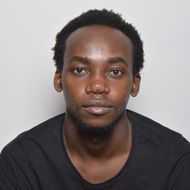International Summer School 2022: New Knowledge and St Petersburg Vibes
The traditional international Saint Petersburg HSE Summer School will take place from July 18 to August 12, offering courses in Russian language and history, business and management, and data science. The Summer School is a chance for both Russian and international students to gain new knowledge and ECTS credits while immersing themselves in the summer atmosphere of St Petersburg. The classes will be held in English in a hybrid format. In this article, our editorial board has highlighted the main features of this year’s programme.
The International Saint Petersburg HSE Summer School invites students and graduates of Russian and foreign universities to take part in courses lasting from one to four weeks. Participants of the Summer School will receive ECTS credits and certificates that grant admission benefits to HSE University. Classes will be held in English both online and offline. Regardless of the format of participation, we welcome everyone to visit this magnificent city on the Neva river, stay in one of the campus dormitories, and experience the unique atmosphere of St Petersburg through a cultural programme that includes a boat trip along famous drawbridges, rivers and canals, as well as excursions to museums.
The course Modern Russia: Language and Culture by Alevtina Iagodova and Natalia Novak focuses on modern Russian language and culture. Participating in this course is the best way to acquire Russian language skills in a short time period: students learn new vocabulary and grammar rules every day in an intensive format. The curriculum is well balanced and includes a lot of practical elements: round table discussions, games, listening to dialogues, poems and musical compositions, watching videos in Russian, as well as reading texts and writing tasks. This approach allows students to immerse themselves in the culture of Russia through the language, quickly and effectively improving conversational skills.
Depending on their level of Russian language proficiency, students will be divided into two groups, each of which is aimed at developing a particular set of skills and competencies. Students at levels A1 and A2 will get a comprehensive Russian language course that contains elements of conversational practice, listening, grammar, reading and writing, and will acquire basic skills for everyday communication. Students at levels B1 and B2 will participate in discussions, practise communicative grammar, listen to authentic texts from different genres and write their own texts. This way, students will be able to improve previously acquired skills and proficiency using them in social and professional spheres. The courses will be held in two sessions: July 18–29 and August 1–12. Students will earn 3 ECTS per session.
Arax Aharonian, participant of the International HSE Summer School 2021

Participating in the Modern Russia: Language and Culture programme at HSE University-St Petersburg was one of the best experiences I have ever had in my life. It turned out better than I could have ever imagined. The course helped me improve my Russian language skills in a short time. It was great to immerse myself in an incredible international student atmosphere and discover the culture and history of Russia. The programme’s curriculum was well structured and was curated by Alevtina Iagodova, who is a consummate professional in this field. Communicating with other students was easy, since we were all enthusiastic and united by one common goal: we all wanted to improve our Russian and did our best to achieve this aim.
In addition to practising Russian, participants of this year's Summer School will be able to discover a lot of new things about the history of St Petersburg. The course City as a Narrative: History, Culture, and Identity of Saint Petersburg by Professor Sergei Akopov will take place from July 18–22. The course aims to explore Russian culture, history and politics by looking at St Petersburg as one of the narratives of Russia’s identity within four dimensions: St Petersburg's 'European Identity'; Russia between the West and East; the key political metaphors of St Petersburg's collective memory; and principal perceptions of St Petersburg within Russia’s changing geopolitical landscape. By completing this course, students will get 2 ECTS credits.
This interactive course offers students an in-depth look at St Petersburg within Russian civilization as a conjunction of culture, society, and politics. It examines the intriguing relationship between St Petersburg and Russian culture, politics, history, international relations, literature and art. Students will discuss the chronology and causes of revolutions in Russia, discover the connection between St Petersburg and the political tradition of Russian autocracy, learn about the history of Russian Orthodoxy in St Petersburg, and explore one of the darkest and most difficult periods in the city's history: the Siege of Leningrad. By getting to know the history and culture of the city, students of the Summer School will learn to understand the ideological context of famous artistic and musical works by Russian artists, and learn about popular stereotypes and social behaviour within Russian culture and society at large.
In addition to taking courses related to humanities, participants will get a chance to gain knowledge in an area that is in high demand today: data science. The course on Data Science for Marketing Analytics by Evgeny Antipov will introduce practical approaches to solving marketing problems using quantitative data. Using Excel and R, students will work with templates to solve real-world problems in various areas of analytics such as marketing research, customer analytics, social media analysis, advertising, and others. During the course, participants will learn how to apply basic statistical and machine learning techniques to get profit, extract maximum information from various data sources available to a company, interpret the results of data analysis and generate reports that present research results.
Students will be given free access to the DataCamp.com platform to study data science during the course and for several months afterwards. Students will also have opportunities to develop research collaborations with the course lecturers and even have papers published in peer-reviewed journals. The course will take place from August 1–12 and will allow students to earn 4 ECTS credits.
Morris Muo Mulitu, participant of the International Summer School 2021

I finally had a chance to study R programming properly—special thanks to HSE and Evgeny Antipov for that. Professor Antipov’s approach and problem-solving skills helped me stay enthusiastic through the whole learning process. This was a short introductory course which taught us the basics of R in relation to marketing analytics. Using real-time examples and datasets, we created and modelled real-world scenarios and made important decisions as if we were working as data analysts in large companies. It was at HSE University that I learned about the DataCamp platform, which I have been using ever since. I completed a course on Python at DataCamp, and now I'm taking an introductory course in SQL. Well, despite the course being short, it made me fall in love with data science and helped me keep on learning. I also had a chance to participate in a roundtable discussion about student life at HSE. There I met some great student leaders who told me about the Erasmus programme.
And last but not least, business and management is another field of study present in the Summer School 2022 programme. The course Imagination and Creative Thinking by Emilia Karpinskaya and Louisa Selivanovskikh, which takes place on July 25–29, is aimed at activating creative and innovative thinking, developing skills that could be used in social and business environment, improving work results in a company or starting a business. The course will introduce students to handy tools for increasing individual and team creativity: participants will learn how to boost their imagination and creative thinking, generate new ideas and develop innovative solutions to complex problems, as well as practise public speaking skills. The course incorporates international best practices in learning and developing imagination and creativity to shape design thinking, empathy, mind maps and much more. Completing the course grants 2 ECTS credits.
In 2021, students from twenty countries took part in the International Saint Petersburg HSE Summer School. The classes were held online.
The text was prepared by Nadezhda Osipova,
Manager of short-term programmes at HSE University-St Petersburg

